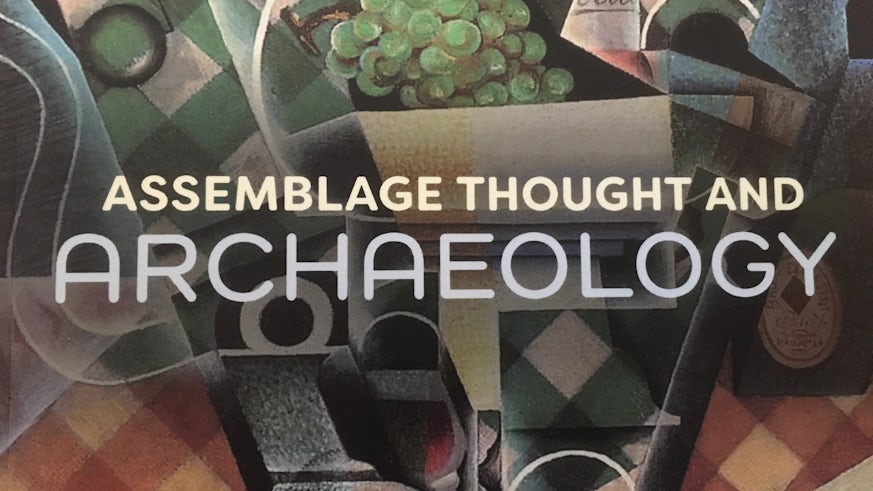Assemblage Thought and Archaeology
5 February 2019

Archaeology lecturer explores latest trends in archaeological theory in new book
In his latest book Assemblage Thought and Archaeology Dr Ben Jervis explores new ways of exploring archaeological artefacts, landscapes and practices through the application of the concept of ‘assemblages’. This approach examines the past by placing an emphasis on difference and unpredictability, rather than similarity and equilibrium or stasis, inspired by the thinking of great twentieth century philosophers Gilles Deleuze and Felix Guattari.
Working within the context of the wider ‘material turn’ and the development of new materialist approaches across the humanities and social sciences, the book specifically places focus on the implications of assemblage thought for studying material culture and urban settlements, and explores its consequences for the practice of archaeological research and heritage management.
It explores these themes in detail, applying the idea of assemblage to specific archaeological case studies, ranging from early urbanism in Mesopotamia to 19th century military fortifications.
The book is particularly relevant to those interested in the latest trends in archaeological theory focusing on material culture, settlement archaeology and archaeological practice.
“Assemblage thought, and material focussed approaches in general, is increasingly common in archaeology and has great potential for approaching the past in new ways. I hope that this book will inspire readers to produce imaginative and challenging archaeological analyses which force us to reflect on how society is formed of relations between the human and non-human".
A specialist in the archaeology of medieval Britain and the analysis of ceramics, Dr Ben Jervis uses material culture to understand how people experienced and managed change and specifically how the roots of contemporary society are planted in the medieval period.
Alongside teaching, he is currently working on two research projects: Living Standards and Material Culture in English Rural Households: 1300-1600 with co-investigator Dr Chris Briggs (Cambridge) and Dietary Change and The Norman Conquest with Dr Richard Madgwick (Cardiff) and Dr Elizabeth Craig-Atkins (Sheffield).
Archaeology studies at Cardiff range from single honours BA and BSc Archaeology and a wide range of Joint Honours at undergraduate level through to Masters, MPhil and PhD.
Assemblage Thought and Archaeology is published by Routledge.
